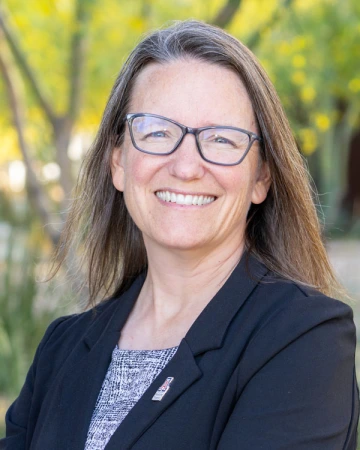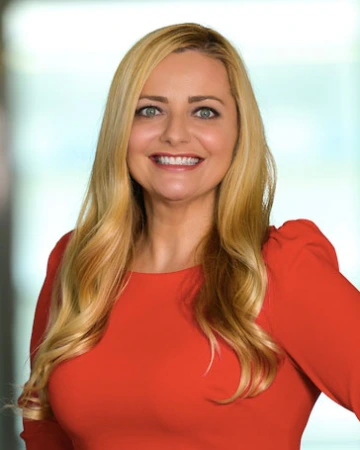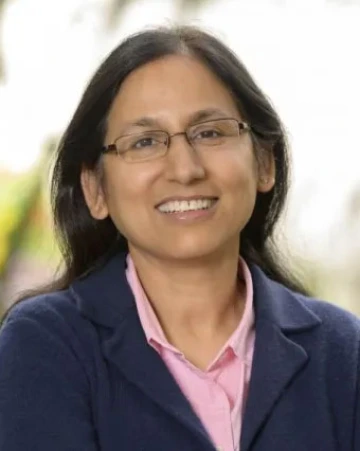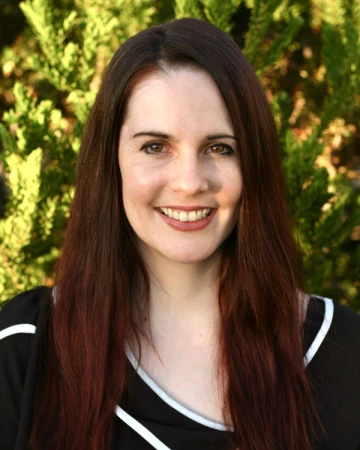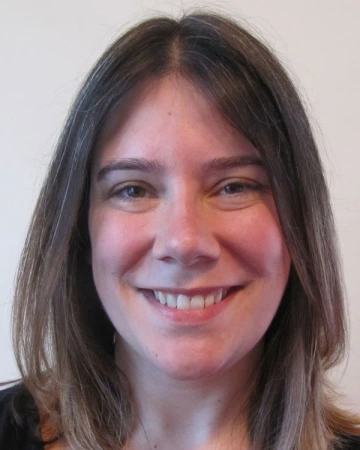KEYS Internship welcomes first Phoenix cohort
The KEYS Research Internship reaches Arizona’s largest city, connecting six local students with hands-on research and dedicated University of Arizona College of Medicine – Phoenix faculty mentors.
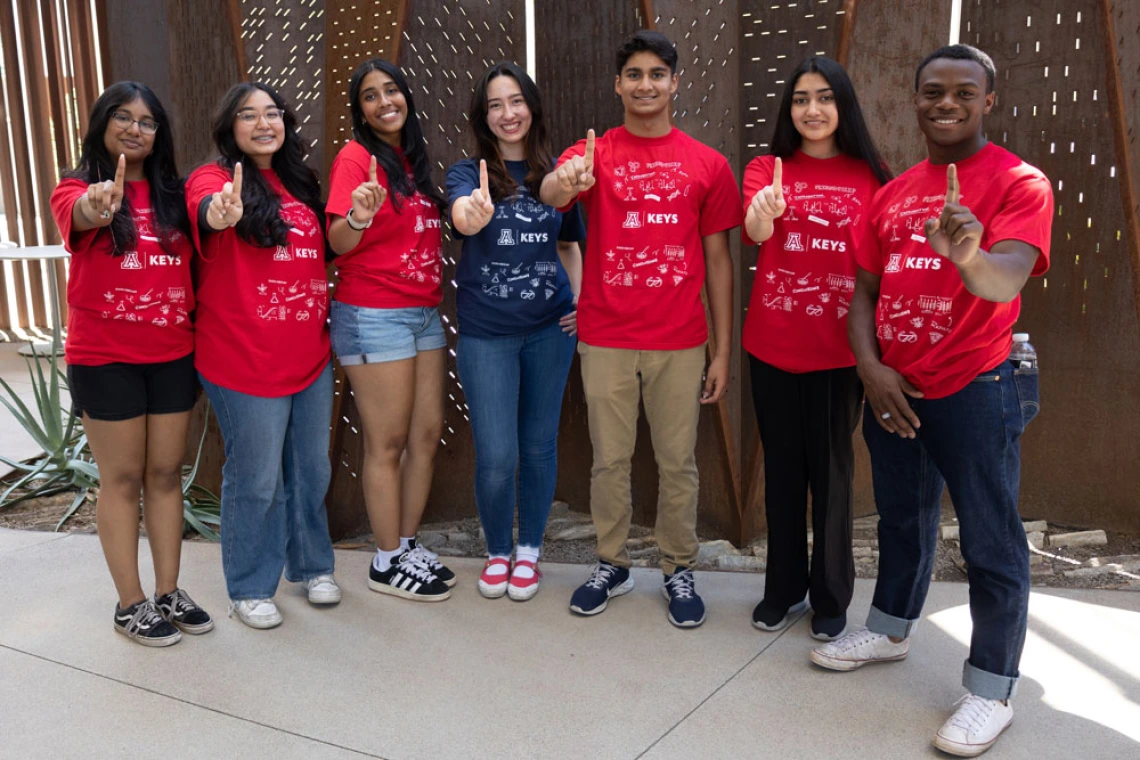
Six interns are part of the inaugural KEYS Research Internship cohort in Phoenix, from left to right: Adya Julakanti (BASIS Phoenix), Ayana Jain (Desert Mountain High School), Shivani Satheeshkumar (Pinnacle High School), Michelle Hein (KEYS Crew), Adi Tyagi (Chaparral High School), Akaisha Bahrie ( Paradise Valley High School), and Matthew Hawkins (Brophy College Preparatory).
Last year, Kelle Hyland faced a good kind of problem.
As the outreach and engagement program manager, she was reviewing a record-breaking 430 applications for the BIO5 Institute’s KEYS Research Internship—a competitive, 7-week summer program at the University of Arizona that pairs high school students with university researchers to build STEM skills.
With only about 60 spots available, Hyland was thrilled to see how far the program had come since starting with just nine interns in 2007. But one trend stood out in 2024: more than half of the applications came from the Phoenix metro area. However, those students remained underrepresented in the program due to KEYS being based in Tucson and lacking housing options.
“We clearly see this growing need for an intensive research-focused summer program in Phoenix,” said Hyland. “With the support of former BIO5 director Jennifer Barton, we decided we wanted to launch a pilot in 2025 to better serve students in their own community.”
This June, BIO5 welcomed its largest KEYS cohort yet with 65 exceptional students from across Arizona, including six in an inaugural Phoenix cohort.
Emphasis on in-person training
This expansion of KEYS builds on the BIO5 Institute’s establishing a stronger presence in Phoenix, aimed at strengthening bioscience research and workforce development statewide.
With the presence of full-time staff and Phoenix engagement strategist, Marissa Starks Banh, BIO5 has doubled its membership with over 20 College of Medicine – Phoenix faculty and participated in Phoenix events in the last two years.
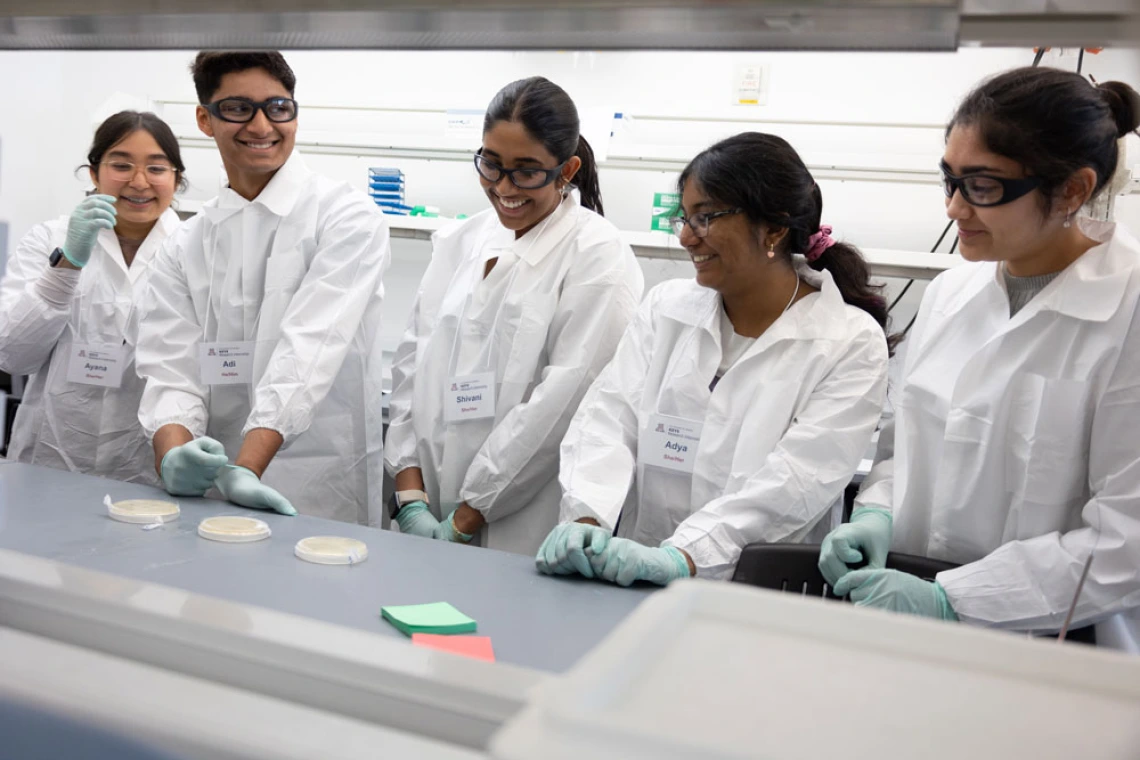
The cohort of KEYS interns in Phoenix received hands-on biotechnology training that mirrored the Tucson programming.
With that foundation, Hyland and her team began building a Phoenix pilot that mirrors the Tucson program. Working closely with Starks Banh, they established local support systems, coordinated hands-on training, and cultivated partnerships with Phoenix-based BIO5 researchers to serve as mentors.
"Many of our applicants want to participate in KEYS because they want to apply what they learn in the classroom to real lab environments,” said Hyland. “We knew we wanted to provide that same experience to our Phoenix interns.”
The Phoenix cohort received in-person research training at the Phoenix Bioscience Core in early June, focusing on foundational skills in biotechnology, data science, and professional communication. The KEYS team also organized in-person social activities, such as science center visits and game nights, to help students connect beyond the lab. They have also arranged local speakers for weekly seminars to broaden the interns’ scientific knowledge.
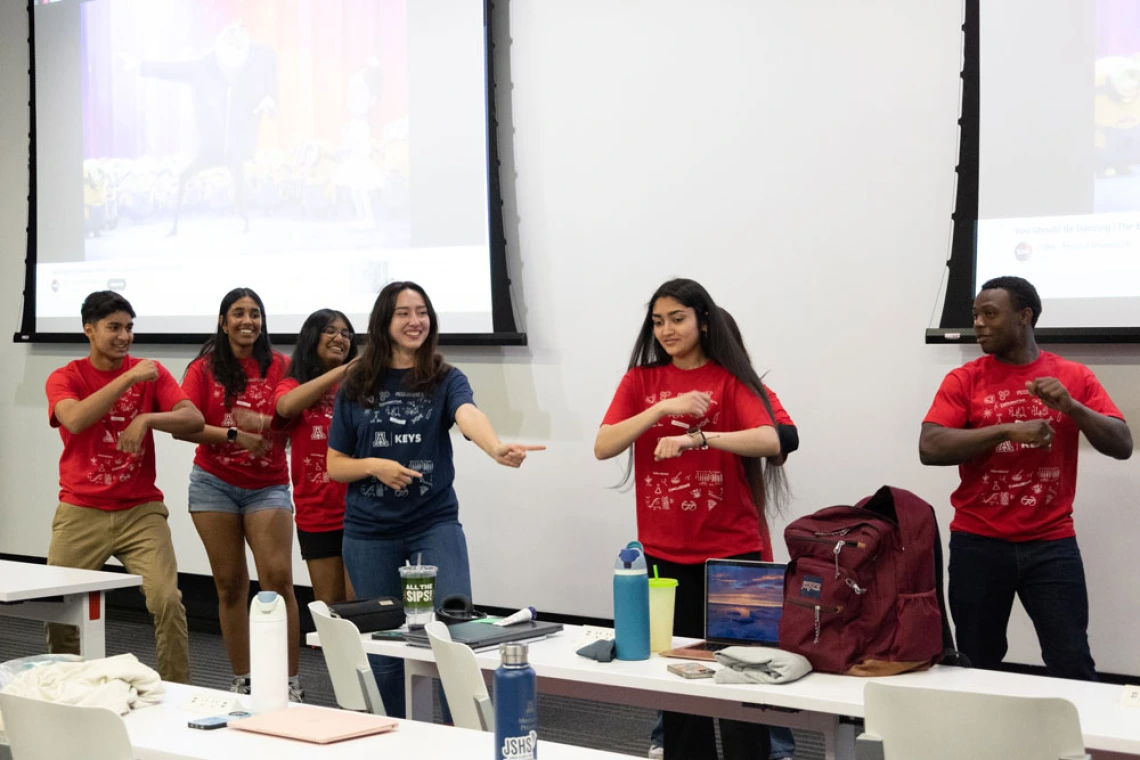
The Phoenix cohort practices a dance during the a team-building portion of the KEYS training week.
To close the summer, the six Phoenix interns will travel to Tucson for the KEYS Research Showcase on July 18, joining their peers to present final posters and celebrate their achievements.
Six interns selected for pilot program
With only six spots available and a surge of interest from Phoenix-area students, Hyland and her team conducted interviews to carefully select a small, standout group for the inaugural cohort.
“Participating in KEYS in Phoenix is a meaningful experience because it allows me to work closely with my mentor, lab team, and fellow interns to gain wet lab skills and hands-on experience—something that’s hard to do online,” said Adi Tyagi, a junior at Chaparral High School and KEYS Phoenix intern. “I’m truly grateful for the chance to be part of the first Phoenix cohort.”
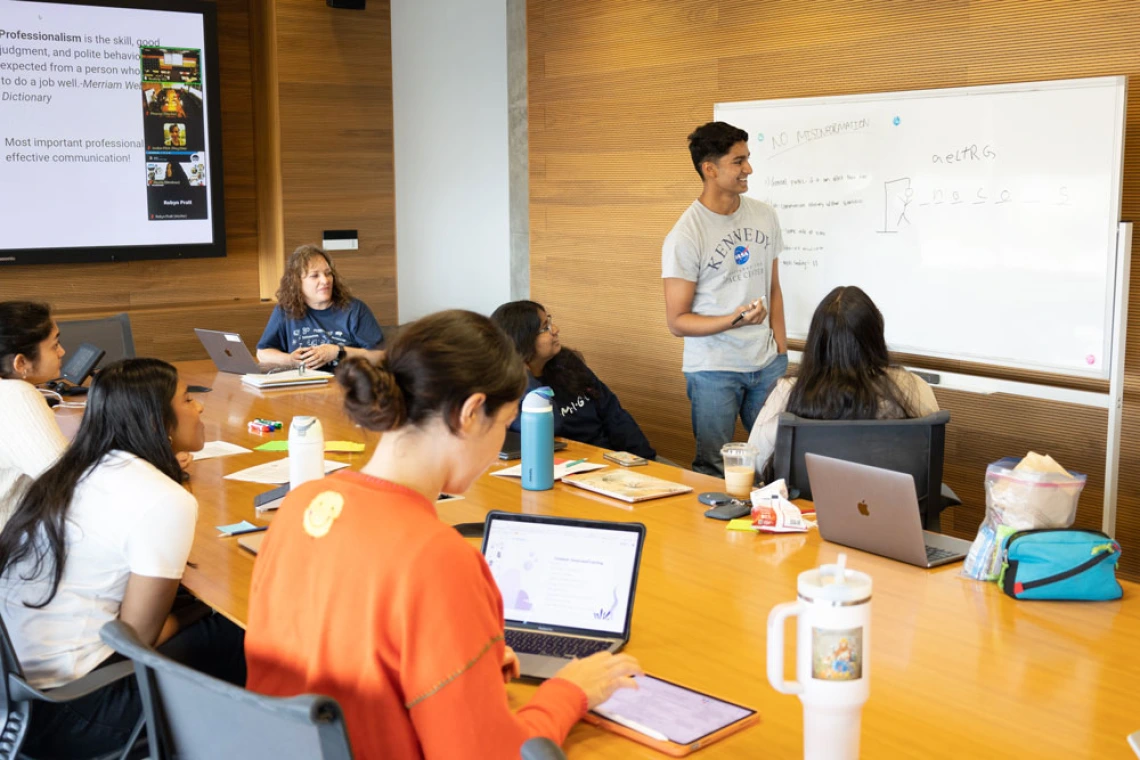
Adi Tyagi (standing) participates during the science literacy and professional development portion of the Phoenix KEYS training week in early June.
Typically, KEYS accepts students first and matches them with U of A mentors later. But with a pool of Phoenix mentors with a more biomedical research focus, the team took an intentional approach to matching from the start.
“I applied to KEYS because I wanted to improve my foundational basis of the cellular biology behind cardiovascular conditions,” said Akaisha Bahrie, a junior at Paradise Valley High School and part of the Phoenix cohort. “I aspire to go into cardiology, and KEYS is immensely invoking my passion to move forward in the medical field.”
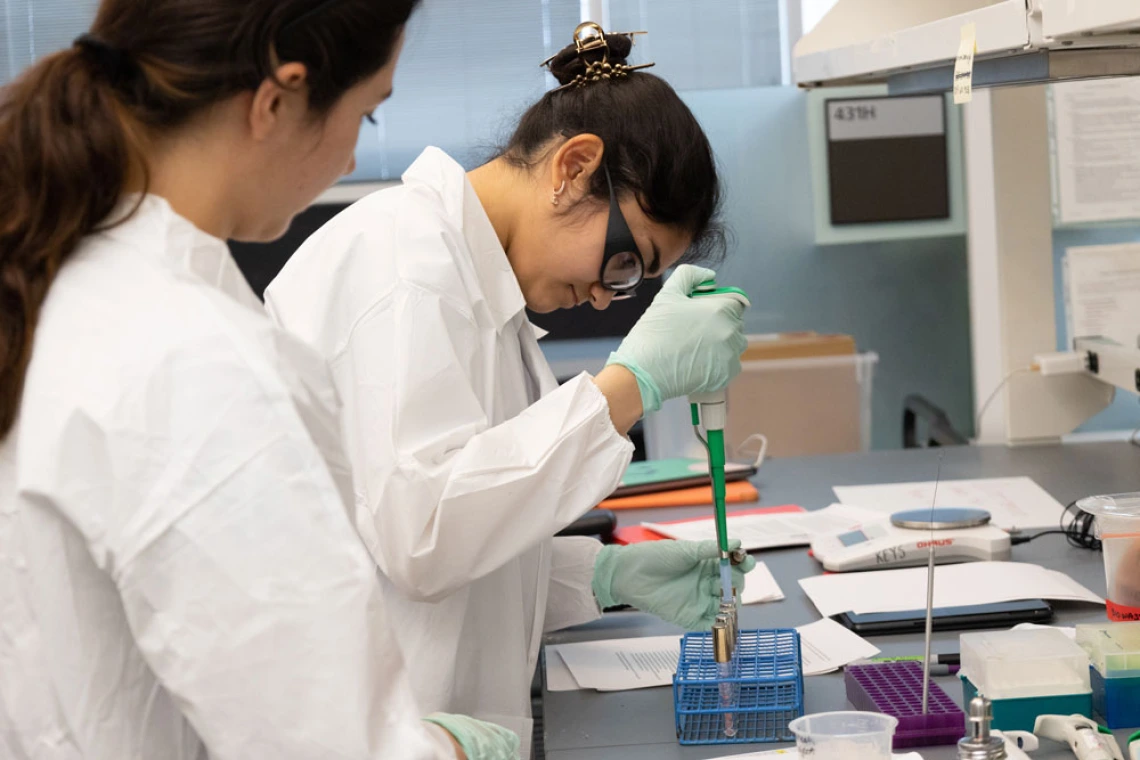
Akaisha Bahrie (right) learns biotechnology techniques during the KEYS Research Internship training week hosted at the Phoenix Bioscience Core.
The Phoenix cohort also includes Matthew Hawkins (Brophy College Preparatory), Ayana Jain (Desert Mountain High School), Adya Julakanti (BASIS Phoenix), and Shivani Satheeshkumar (Pinnacle High School).
Mentorship at the heart of KEYS
The KEYS experience is made possible by dedicated U of A faculty who volunteer their time and labs to mentor students in real-world scientific research. These mentors aren’t compensated, they participate because they believe in the value of sparking curiosity and showing students what science looks like in action.
KEYS interns gain hands-on experience with diverse, impactful research—both in person in Tucson and virtually—ranging from testing biomedical devices and modeling genetic diseases to studying foodborne pathogens and soil health. In Phoenix, interns will focus on projects ranging from examining genomic data related to hearing loss to non-invasive diagnostics for women’s health and how certain drugs affect heart structure.
At the College of Medicine – Phoenix, six BIO5 faculty members have stepped up to mentor the inaugural Phoenix cohort with the help of their labs: Shirin Doroudgar, Melissa Herbst-Kralovetz, Mrinalini Kala, Isabelle Schrauwen, and Melissa Warden.
The road ahead for KEYS in Phoenix
With the program underway, the KEYS team has navigated logistical and staffing challenges. Looking ahead, they hope to sustain the Phoenix cohort, depending on faculty availability and resources.
“We want to keep expanding KEYS to reach as many students as possible,” said Hyland. “Here in Tucson, KEYS is integral to BIO5, and we’d love to build that same connection in Phoenix.”
Meet these College of Medicine – Phoenix faculty members and hear why they are excited to participate in KEYS.



